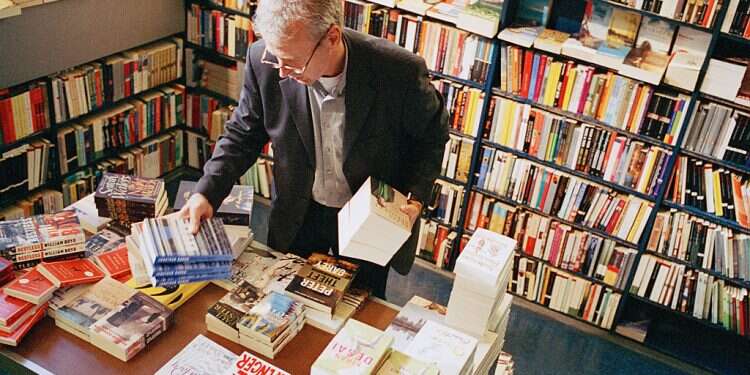The military mobilization, which Russia announced on Sept. 21, has impacted sales across the country, including bookstores. Yet, one category has become surprisingly popular as interest spiked in the literature about Nazism and the lives of Germans at the time.
Follow Israel Hayom on Facebook, Twitter, and Instagram
The Chitay Gorod bookstore chain, for example, reported that sales of "The German War: A Nation Under Arms," in which author Nicholas Stargardt researched the diaries and private letters of German citizens at the time of the Third Reich, increased five-fold, and in another chain, Litres, by 17 times.
According to Russian daily Kommersant, there has been an increase in all books in this category.
Publishing houses said there has been a growing demand for Julia Boyd's "Travellers in the Third Reich: The Rise of Fascism Seen Through the Eyes of Everyday People," which describes the rise of the Nazi regime based on first-hand accounts.
The Alpina publishing house said that sales of "Man's Search for Meaning" by Holocaust survivor Viktor Frankl increased by 40%, and Litres said it jumped by a whopping 279%.
Litres also said that sales of Erich Maria Remarque's books on pacifism went up by 27%.
Russian literary critic Galina Yuzefovich told Kommersant that the sales stemmed from "people's need for an explanation for what is happening in the country. And since the contemporary Russian media can hardly provide a comprehensive and plausible explanation, people turn to literature. No literature has yet been written that discusses the current moment in which we live, and it won't be written for a long time."
In addition to an increase in the sale of books about Nazi Germany, pharmacies reported a rise in demand for anxiety medications, which increased by 30% compared to the same period last year.
In the week after the mobilization announcement alone, the number of people who sought such medication went from 35% to 70%. In comparison, in February, when Russia invaded Ukraine, the number went from 46% to 55%. In the summer, it dropped to about 40%, when interest in the Ukraine war dropped.
Subscribe to Israel Hayom's daily newsletter and never miss our top stories!




